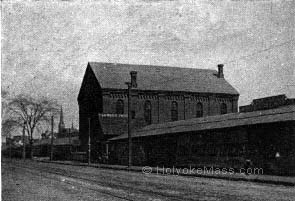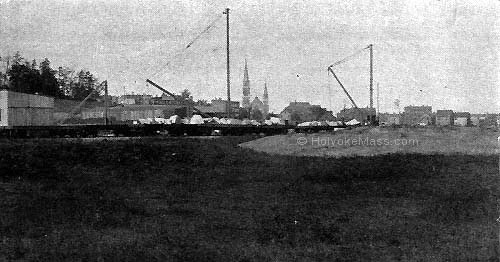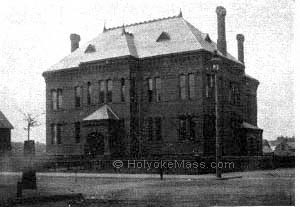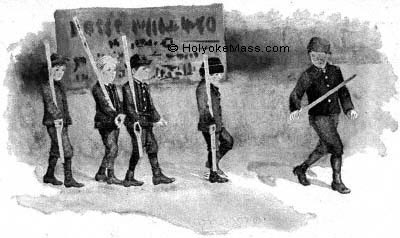|
Thrift.
by Theodore T. Manger.
in "On the Threshold."
|

Old Methodist Church.

One The Plain East of the City.
|
"Please Take My Picture"
Life he sought in the city street —
A touch of the people and the soul of the town
Behind him, before him and under his feet.
It found him out and hunted him down.,
With from each little boy and each little sister:
"Please, won’t you take my picture, Mister?"
Life he sought, for life is treasure,
In alleys dark and in business ways;
Took and gave he measure for measure,
For his lense was true to every phase,
While cries each child of the street life mixture,
"Please, Mister, won’t you take my picture?"
R.
|
New England has two great inspiring minds—Jonathan Edwards and Benjamin Franklin. Far apart in spirit and character, they formed a grand unity in their influence. One taught religion, the other thrift; one clarified theology, the other taught the people how to get on. Edwards tided New England over the infidelity that prevailed in the last century; Franklin created the wealth that feeds society to-day by inspiring a passion for thrift. Hence, for a century, irreligion and beggary were equally a reproach, and still in no country in the world is the latter held so vile.

Sargeant Street School.
|
But the power of these two formative influences is evidently waning. Nor is it to be altogether regretted. Both were too austere to be perpetually helpful; neither regarded the breadth and scope of human nature. The danger is least the ebb be excessive, and its method be exchanged for others not so sure and wholesome. Thrift pertains to details. Our courage prompts to risks, our large-mindedness invites to great undertakings; yet great undertakings are for the few, while thrift is for all. Large enterprises make the few rich, but the majority prosper only through the carefulness and detail of thrift.

Soldiers.
|
But, while shunning the jaws of waste, there is danger of drifting upon the rocks of meanness. I say frankly, if either fate is to befall us, I would rather it were not the last.
I begin by insisting on the importance of having money. Bulwer says: "Never treat money affairs with levity; money is character." And indeed character for the most part is determined by one’s relation to money. Find out how one gets, saves, spends, gives, lends, borrows, and bequeaths money, and you have the character of the man in full outline. "If one does all these wisely," says Henry Taylor, "it would almost argue a perfect man." Nearly all the virtues play about the use of money—honesty, justice, generosity, charity, frugality, foretohought, self sacrifice.

Depot Hill, Now Canonchet Park.
|
If poverty is out lot, we must bare it bravely and contend against its influences; but we are not to think of it as good, or in any way except as something to be avoided or gotten rid of, if honor and honesty permit it. You may already have a sufficiently ill opinion of poverty, but you may not understand that one is already poverty-stricken if his habits are not thrifty. Every day I see young men—well dressed, will full purses and something of inheritance awaiting them—as plainly foredoomed to poverty as if its rags hung about them.
© Laurel O’Donnell 1996 - 2006, all rights reserved
This document may be downloaded for personal non-commercial use only
and may not be reproduced or distributed without permission in any format.
This is an edited adaptation from the original publication.
|
|
|